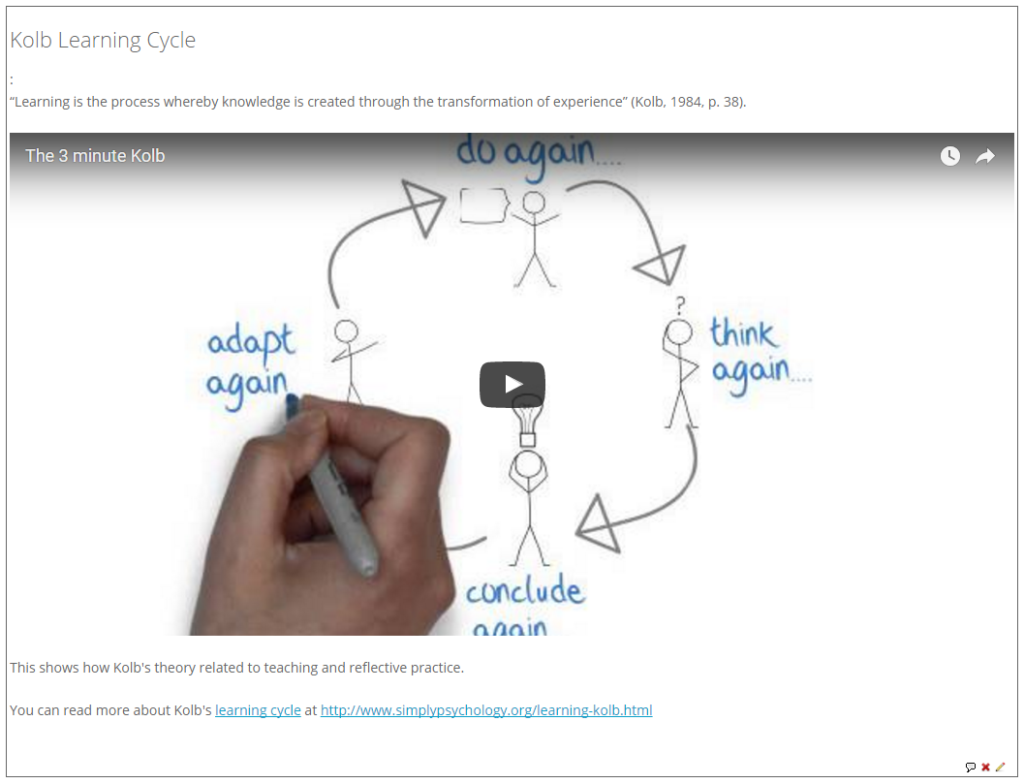Thankyou for reading this EE blog post this is representative at the time it was written.
Every discipline has its own specialist terms and concepts. As students progress in their studies they learn the relevant language, but when they begin their studies there are lots of words that they are unsure about. Developing students’ fluency in the language associated with their discipline will put them in a better position to understand course materials and discussions and to express themselves in writing, so it is well worth introducing some activities to scaffold that aspect of their learning.

“Shakespeare’s words” flickr photo by Calamity Meg https://flickr.com/photos/disowned/1158260369 shared under a Creative Commons (BY-NC-ND) license
Some ideas for using learning technologies to develop vocabulary.
- Polling vocabulary and key concepts. You can check understanding of key concepts in lecture settings using response systems such as Poll Everywhere. This could be by asking students which terms they feel confident about, or testing them on the definition of a new concept introduced in the previous lecture.
- Flashcards. There are a number of mobile apps and online tools for creating flashcards (such as StudyBlue and Quizlet). Students could research key terms and create cards before a seminar then test each other.
- Sorting activities on the SMARTboard. Using an interactive whiteboard, list terms or concepts and definitions that can be moved around and matched up.
- Online quizzes. A Study Direct quiz with multiple choice or true/false questions could be used to let students test their understanding of key terms.
The Glossary activity in Study Direct
One of the best ways to scaffold learners’ development of a discipline-specific vocabulary is the Glossary activity in Study Direct (Moodle). A glossary could just be a list of words with their definitions, but there is much more you can do to engage students. The biggest learning gain probably comes from students creating glossary entries themselves.
Students building glossaries
- Clarifying terms from readings and lectures. Students could add new words as they encounter them in their reading or lectures. Taking responsibility for some of the entries will involve students in more active learning and help them develop understanding of the terms. This could be an individual or small group activity carried out after lectures and/or in seminars. When the activity is set up you can choose to either accept all student entries, or to hold them until a tutor has approved them for publication. This not only ensures that misunderstandings are not spread, but reassures students that their contributions and those of their peers are valued.
- Building vocabulary for language learners. Students learning a language will need to develop a good vocabulary and this case study from Edinburgh Napier University describes using the Moodle glossary tool to achieve that.
- Alternative definitions. If you allow multiple entries for each word/concept then students can use their own words to provide alternative explanations of key terms. This is a valuable learning activity that also adds richness to the glossary.
- Peer learning. Why not experiment with allowing comments and/or rating entries so that students can add to each other’s entries and indicate which they find most useful.
- Make it multimedia. Ask students to use a range of media in their glossary entries – they can use text, web links and embedded video (e.g. from YouTube) to build up understanding of a concept. This sort of activity can also help students develop critical thinking and curation skills as they select the best resources to explain a term.
- Show the learning. If you set the activity to allow students to edit their entries they will be able to develop their definitions in light of peer learning and see how their understanding is growing.

A glossary entry with embedded YouTube & web link.
Make the most of your glossary.
Glossary entries can be accessed in a range of ways – the glossary can be a static resource to be browsed or searched, but there are other ways to use it.
- Linking. If you choose to ‘link’ glossary entries then whenever a word that is in the glossary appears elsewhere on the site (in a resource or activity) it will be a hyperlink to that entry in the glossary. This makes it easy for students to check the meaning of unfamiliar words while taking part in forum discussions etc.
- Random glossary entries block. You can add a block to the side of your site which will display entries from a glossary. You can choose to show random entries, the latest entry, or the next entry. By adjusting the ‘days before a new entry is chosen’ you can have a ‘word of the day’ or ‘word of the week’.
- Print option. If you choose to allow printing students will be able to print out the glossary as a revision aid.
How to create your own glossary in Study Direct
To help Sussex University staff to get started with the glossary activity we have created a step-by-step guide. Or you can contact the TEL team to discuss your options.



[…] Read the full story by University of Sussex Technology Enhanced Learning Blog […]